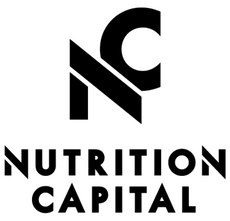In the pursuit of achieving significant muscle growth, many fitness enthusiasts tend to focus solely on intense workouts and a protein-rich diet. However, what often goes underestimated is the crucial role that rest and recovery play in the muscle-building process. In this comprehensive guide, we'll explore the importance of rest and recovery for muscle growth and provide practical tips to help you maximize your gains.
Understanding Muscle Growth
Before delving into the importance of rest and recovery, it's essential to understand how muscle growth occurs. When you engage in resistance training, you create microscopic damage to muscle fibres. The body responds to this damage by repairing and rebuilding the fibres, leading to muscle growth. However, this process is not as simple as it may seem; it requires a delicate balance between training, nutrition, and recovery.
The Role of Rest in Muscle Growth
-
Repair and Regeneration: During rest, the body directs resources toward repairing and regenerating damaged muscle fibres. This repair process is essential for hypertrophy, which is the enlargement of muscle cells.
-
Hormonal Balance: Adequate rest helps maintain a healthy hormonal balance, including growth hormone and testosterone levels. These hormones play a crucial role in promoting muscle growth and overall recovery.
-
Prevention of Overtraining: Overtraining occurs when the body doesn't have sufficient time to recover between workouts, leading to a decline in performance, increased risk of injury, and hindered muscle growth. Rest days are vital to prevent overtraining and optimise your training program.
The Importance of Quality Sleep
One of the most critical components of rest and recovery is getting quality sleep. Sleep is when the body releases growth hormone, aids in muscle repair, and supports overall recovery. Aim for 7-9 hours of uninterrupted sleep each night to maximise its benefits.
Tips for Effective Rest and Recovery
-
Active Recovery: Incorporate light activities such as walking, swimming, or yoga on rest days. This helps enhance blood flow, reducing muscle stiffness and promoting recovery.
-
Nutrition: Ensure you're consuming a balanced diet with an emphasis on protein to support muscle repair. Additionally, stay hydrated and consider incorporating anti-inflammatory foods to reduce muscle soreness
-
Hydration: Proper hydration is essential for overall health and recovery. Water facilitates nutrient transport, helps regulate body temperature, and aids in muscle function. Aim to drink at least 8 glasses of water per day.
-
Massage and Foam Rolling: Regular massages and foam rolling can help alleviate muscle tension, improve flexibility, and enhance overall recovery. These practices promote blood circulation, speeding up the delivery of nutrients to muscle tissues.
-
Mind-Body Techniques: Incorporate stress-reducing activities such as meditation, deep breathing, or mindfulness. Chronic stress can impede recovery, so taking time for relaxation is crucial for overall well-being.

